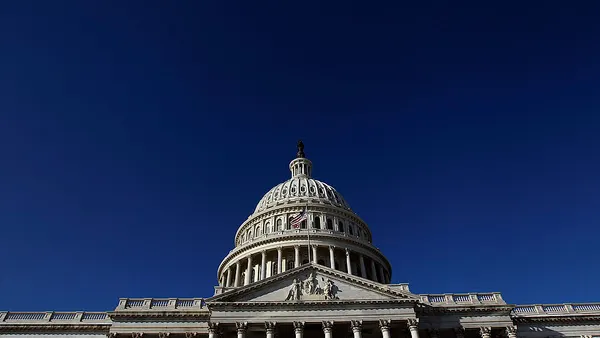Dive Brief:
- The US Court of Appeals for the Second Circuit has sided partially with the plaintiffs in a hospital patient admission-status case that began in 2011. In doing so, the three-judge Court of Appeals panel rejected the Obama administration's stance that hospital admission-status decisions are mainly in the hands of physicians and beyond the authority of Medicare.
- The US Court of Appeals has sent the case back to the District Court, ordering it to review whether Medicare beneficiary rights under the due process clause of the Constitution are being violated. Plaintiffs argued that there should be federal rules for patient notification so patients know whether they are classified as being under observation or as inpatients.
- The case centers on Medicare payments for beneficiaries transferred from hospitals to skilled nursing facilities.
Dive Insight:
Different stakeholders are lining up on either side of the fence over the so-called "two-midnight" rule, and it's no surprise who is on either side. Because costs are incurred by hospital patients based on their status as being under observation or inpatient, organizations including the Connecticut State Medical Society and several specialty medical societies have expressed support for the plaintiffs.
"The District Court erred in concluding that plaintiffs lacked a property interest in being treated as 'inpatients,' because, in so concluding, the District Court accepted as true the [Department of Health and Human Services] Secretary's assertion that a hospital's decision to formally admit a patient is 'a complex medical judgment' left to the doctor's discretion," the Court of Appeals opinion read. "That conclusion, however, constituted an impermissible finding of fact, which in any event is inconsistent with the complaint's allegations that the decision to admit is, in practice, guided by fixed and objective criteria set forth in 'commercial screening guides' issued by the Centers for Medicare & Medicaid Services (CMS)."
What that means is that the fight is far from settled. According to Center for Medicare Advocacy attorney Alice Bers, the ruling could turn out to be a victory for the plaintiffs in the long run.
"Plaintiffs made plausible allegations that Medicare has not left this decision to doctors' discretion and has set criteria for whether or not someone should be admitted," Bers said. The case will now return to the District Court for discovery to determine whether the decision to admit a patient is the sole discretion of physicians (as HHS claims) or if it is being directed by Medicare (as the plaintiffs claim).
"Bottom line: The Second Circuit recognizes that Medicare beneficiaries may have a property interest in their Medicare Part A coverage as hospital inpatients that is protected by the due process clause of the Constitution," Bers said.
Few need reminding that this issue is bigger than the handful of Medicare beneficiaries initially impacted by the original status decisions. The outcome has the potential to set a precedent for classification on a federal level.













